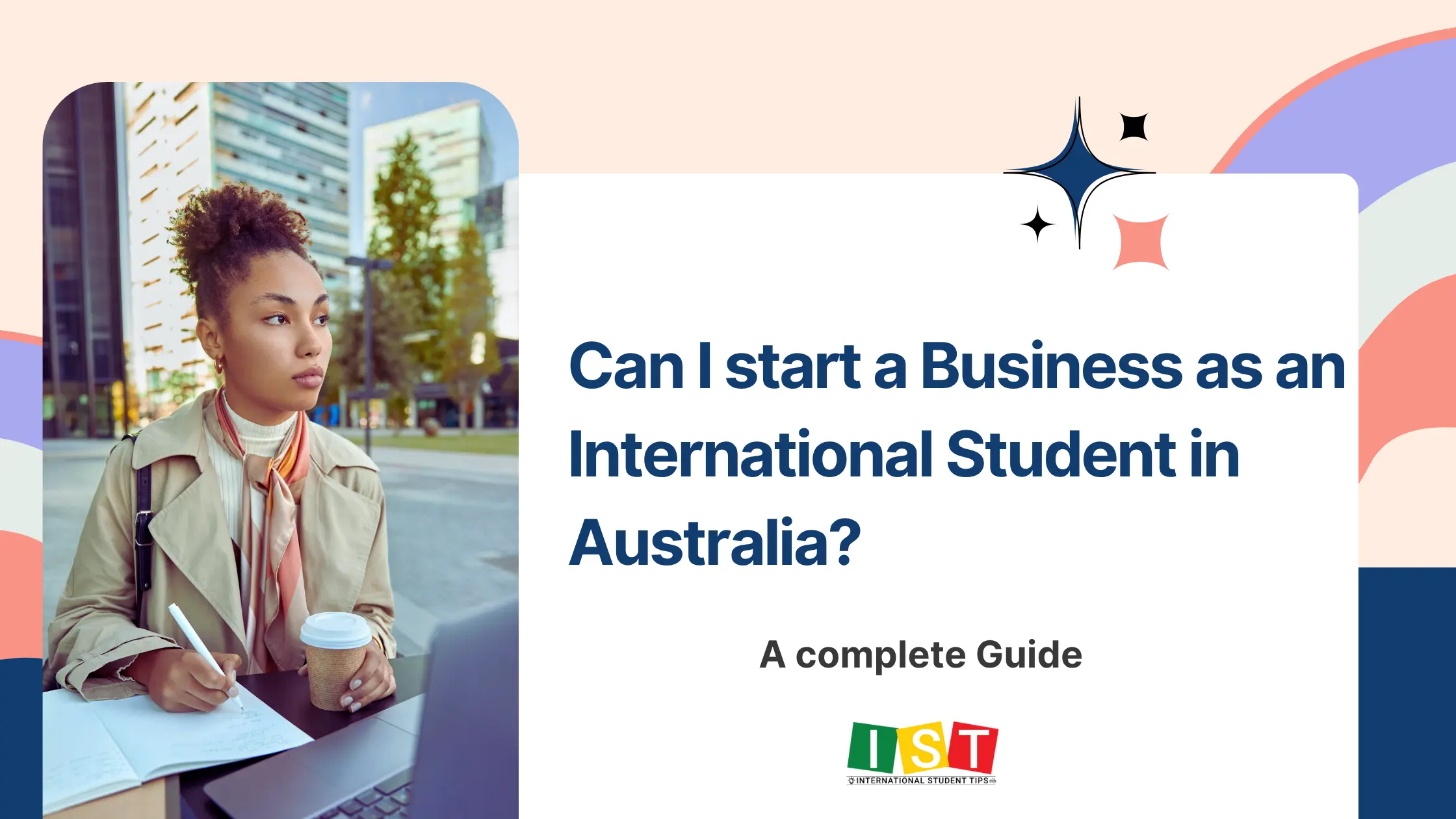
Can I start a Business as an International Student in Australia?
Looking for part-time work as an international student? That’s one way to earn, but it’s not the only path! Did you know you can start your own business in Australia—even on a Subclass 500 visa? All it takes is creativity and careful planning. Curious how to get started? Read on to learn about registration steps and tips to make the most of your venture!
Hey, international students! Welcome back for more tips and resources to help you thrive Down Under. “What if I started my own business?” I’m pretty sure many of us have whispered this question to ourselves. Whether it’s a café, an online store, or a tutoring gig—whatever your dream of, it’s possible as an international student! But there are certain rules to follow and steps to take. In this post, we’ll cover whether you can start a business on a student visa, the key steps, registration and compliance, work rights, and resources to help you mark your name in Australia. Hop on board and let’s turn your idea into reality!
Student Visa and Business Rights
Your Subclass 500 student visa does allow work, but there are some limits:
- Work Hours: Up to 48 hours per fortnight during study terms and full-time during breaks. Time spent running your business counts toward this limit—things like marketing, sales, or admin work.
- Business Ownership: Yes, you can start a business! Self-employment (e.g., as a sole trader) is allowed, as long as it fits within your work hours and you stay enrolled full-time in a CRICOS course.
- Risks: Overworking or neglecting studies can breach your visa. If unsure, check with the Department of Home Affairs (DHA) or a MARA agent.
What Are the Steps to Start a Business?
Starting a business in Australia as an international student can be so exciting that you might find it hard to sit still! But before jumping straight in, planning things carefully will help you succeed in the long run. Here’s a simple roadmap to get you started:
- Check Your Visa First: Before anything, always check that your Subclass 500 student visa allows you to run or be involved in business activities (more on this below). You definitely don’t want visa issues getting in the way of your dream!
- Research Your Idea: List your strengths, skills, and interests. Then combine your passions with a service or products others would value. Starting with what excites you helps your idea stand out in the market!
- Create a Business Plan: Now that you have your idea, think about who your audience is. Don’t just consider your customers—also plan your budget and goals.
- Choose a Structure: Decide who will be involved: just you, a partnership, or a company. As a student, being a sole trader—like freelancing or running a small online shop—is common and cost-friendly.
- Register and Launch: Finally, register your business name and get an Australian Business Number (ABN) —more on this in the next section. Start small to test your idea before scaling up.
Pro Tip: Start with low-cost ideas like tutoring or drop-shipping to stay within your student budget.
Registration and Compliance
Let’s be a smart business owner and tick all the legal boxes! Here’s what you need:
- Australian Business Number (ABN): Apply for a free ABN—your business ID for taxes and trading. But first, you’ll need a Tax File Number (TFN).
- Business Name Registration: Not using your personal name? Register a business name through the Australian Securities and Investments Commission (ASIC) for $45/year.
- Tax Compliance: If your profit hits $75,000 annually, register for Goods and Services Tax (GST). File taxes via the ATO—non residents pay 15% on the first $45,000 earned.
- Licenses and Permits: Depending on your business (e.g., food or events), you may need local council permits. Check with your city council, like City of Melbourne.
- Insurance: Just like your health or car insurance, public liability insurance (around $50-$100/month for sole traders) helps you protect your business—especially if customers visit in person or you sell at markets.
Useful Resources to Make the Most of Your Business
Boost your student business with these helpful tools:
- Study Melbourne: Offers free workshops and networking for student entrepreneurs in Victoria. Check events at studymelbourne.vic.gov.au.
- Business.gov.au: A one-stop hub for planning, registering, and managing your business. Free templates and guides are available at business.gov.au!
- University Entrepreneurship Programs: Many unis (like RMIT or Monash) offer startup incubators, grants, or workshops. Ask your career centre for opportunities.
- ATO Small Business Support: Beginner-friendly webinars and tax guides at ato.gov.au/businesses-and-organisations.
- Networking Groups: Meet local entrepreneurs, exchange tips, and explore collaborations via meetup.com.
Starting a business as an international student can be thrilling, but preparation is key. Use these resources to plan wisely, stay compliant, and connect with the right people. Your dream venture is closer than you think—take the first step today!
Suggested Blogs

Can I start a Business as an...

 Visa & Immigration
Visa & Immigration
 Finance
Finance
 Tips for Students
Tips for Students
 Travel & Explore
Travel & Explore
 News
News
 Explore Australia
Explore Australia
 Student Life in Australia
Student Life in Australia
 Work in Australia
Work in Australia